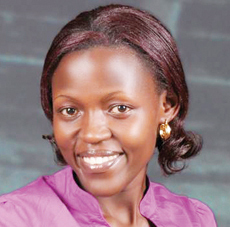It is good to talk to children about reproductive health
Often parents want to help their children lead healthier sexual lives

By Irene Mirembe
Recently, the media is awash with alarming headlines on how the government is plotting to provide family planning to young children as young as 10 years. This might sound alarming but it helps generate public debate on this issue. The media is doing a great job to bring these issues to the fore front for debate. This is the only way to garner meaning full and collective insight on issues affecting young peoples' Heath and rights.
There are more than 1.1 billion adolescents worldwide today - meaning one in every five people on the planet is aged between 10 and 19 years. And Approximately 1.5 billion of today's world Populations is composed of young people between 10 and 24 years old.85% of them live in developing countries.
Equally important to note is that among the youth, face according to UNAIDS, many health challenges especially among the girls who experience teenage pregnancy hindering their education and securing employment. Teenage pregnancies reduce women's career opportunities which cause gender inequality
According to the Uganda's 2011 demographic and health survey, nearly a quarter of girls aged 15 to 19 have had a baby or are pregnant. Many drop out as a result; secondary school enrolment rates are lower among girls than boys.
According to UNAIDS, Uganda's for example in Uganda, Uganda ranks second to South Africa with the highest new HIV infections in young women between 14 and 24 years...
Uganda has one of the largest young populations presently with over 50% of the country's population being young people under 15 years of age and the number is growing.
This has a huge implication on the country's economy and general future especially as they are at risk of HIV infections and Sexually transmitted diseases. For example HIV Prevalence among young people is at 6.4 %. Every country desires a health and vibrant population if it's to achieve its economic growth and sustainability. This can be achieved if the country's population is health and this is what the reproductive health guidelines are trying to do. Guide the young people to adopt and practice safe health practices. It is the only sure way to secure Uganda's future.
What the government and like-minded development partners are doing is to develop guidelines on how to better equip young people especially adolescents on their reproductive health and rights and how to cope with the changes in this ever growing and risky global community.
The Adolescent Health Policy Guidelines and service standards seeks only increase comprehensive knowledge among young people, but to empower them to adopt protective behaviors, such as refusing unwanted sex, delaying sex, and testing for HIV among others.
Often parents want to help their children lead healthier sexual lives, however, they may find it difficult to talk to them about this topic. Parents need to know that children hold them in high esteem and they should leverage on this to empower them to make healthier life choices.
The benefit of empowering young people with knowledge of their health will in the long term improve National comprehensive knowledge about HIV will have reached at least an 80% threshold among young people in and out of school, including through the provision of good quality sexuality education. This is a Uganda we all want, a population that does not die of preventable diseases or ignorance.
There is a great need to improve and scale up effective sexuality education programmes that recognize young people's rights to access the information they need to make life-saving and informed decisions that effectively nurture adoption of safe behaviors - thus empowering them to protect themselves from HIV, sexually transmitted infections (STIs), unintended pregnancies and related unsafe abortions, as well as sexual violence and coercive sex.
Parents and care givers pay enough attention to empowering young people; build their confidence to deal with body changes and peer pressures. Formal education is of great importance for the development of adolescents. Schools provide an environment for acquiring knowledge, and for building literacy and thinking skills. Education is a vital tool for socio-economic development and also for its positive impact on health. Therefore Schools are a major source of education and guidance on specific health issues and, offer a setting for the provision of health screening and health services.
Let's remember the government is equally committed to investing efforts in achieving health Sustainable Development Goals 3 & 5 whereby SDG 3 targets to ensure good health and well-being (Ensure healthy lives and promote well-being for all at all ages) while SDG 5 aims to achieve gender equality and empower all women and girls.
Uganda being a country with the youngest population in the world, the youth are our lifeline. They are our future; they must be supported to grow into responsible and healthy adults for posterity.
The writer is a women and girls health advocate